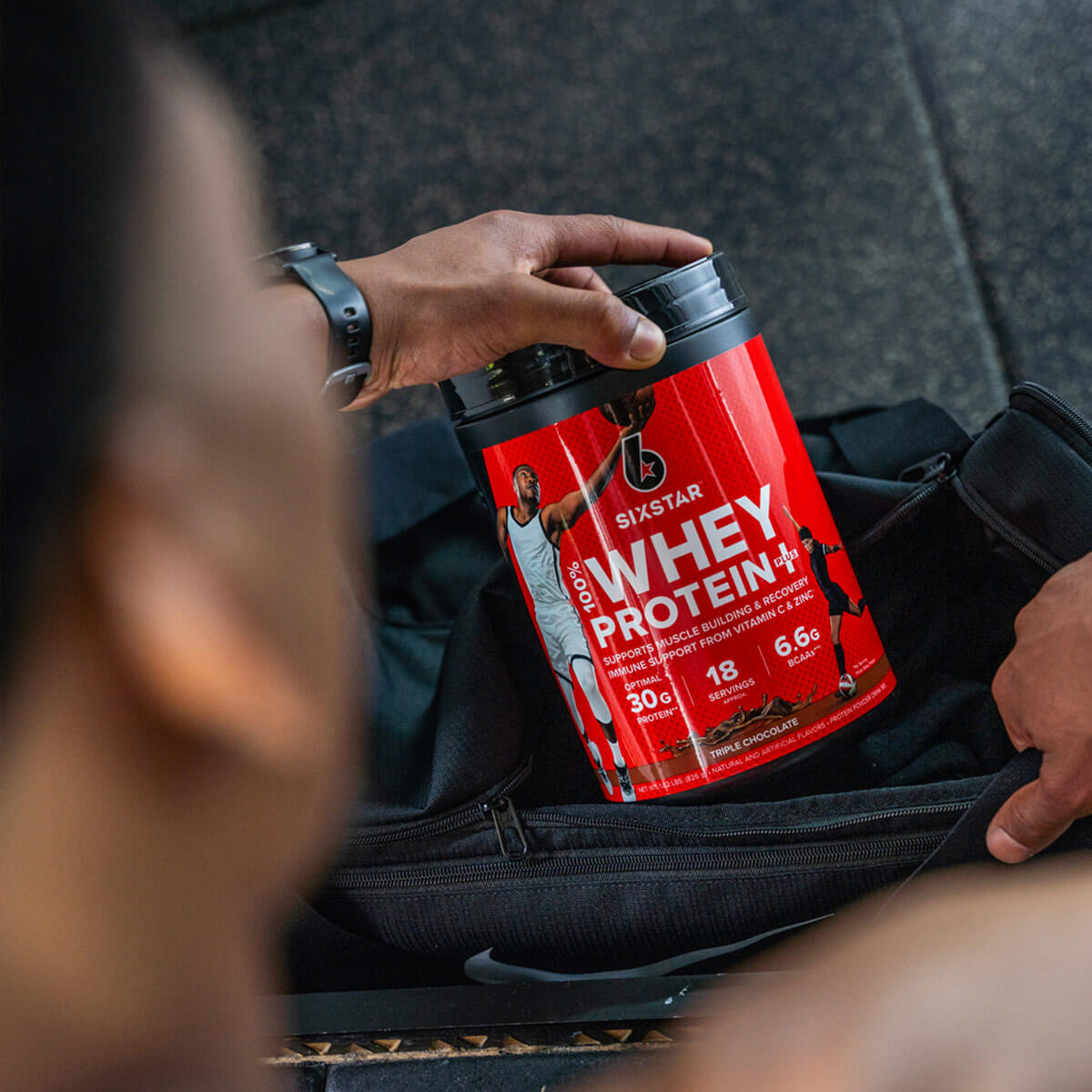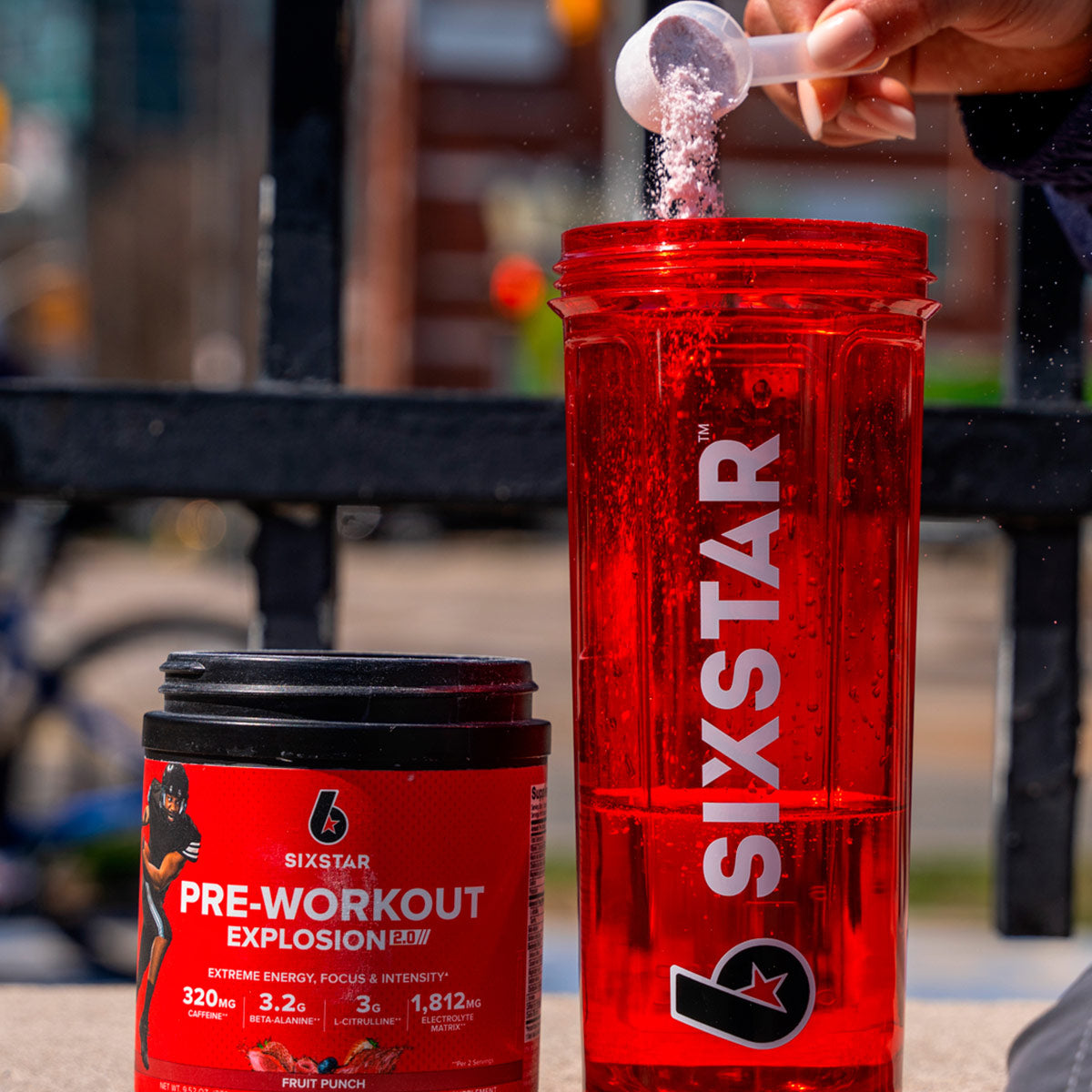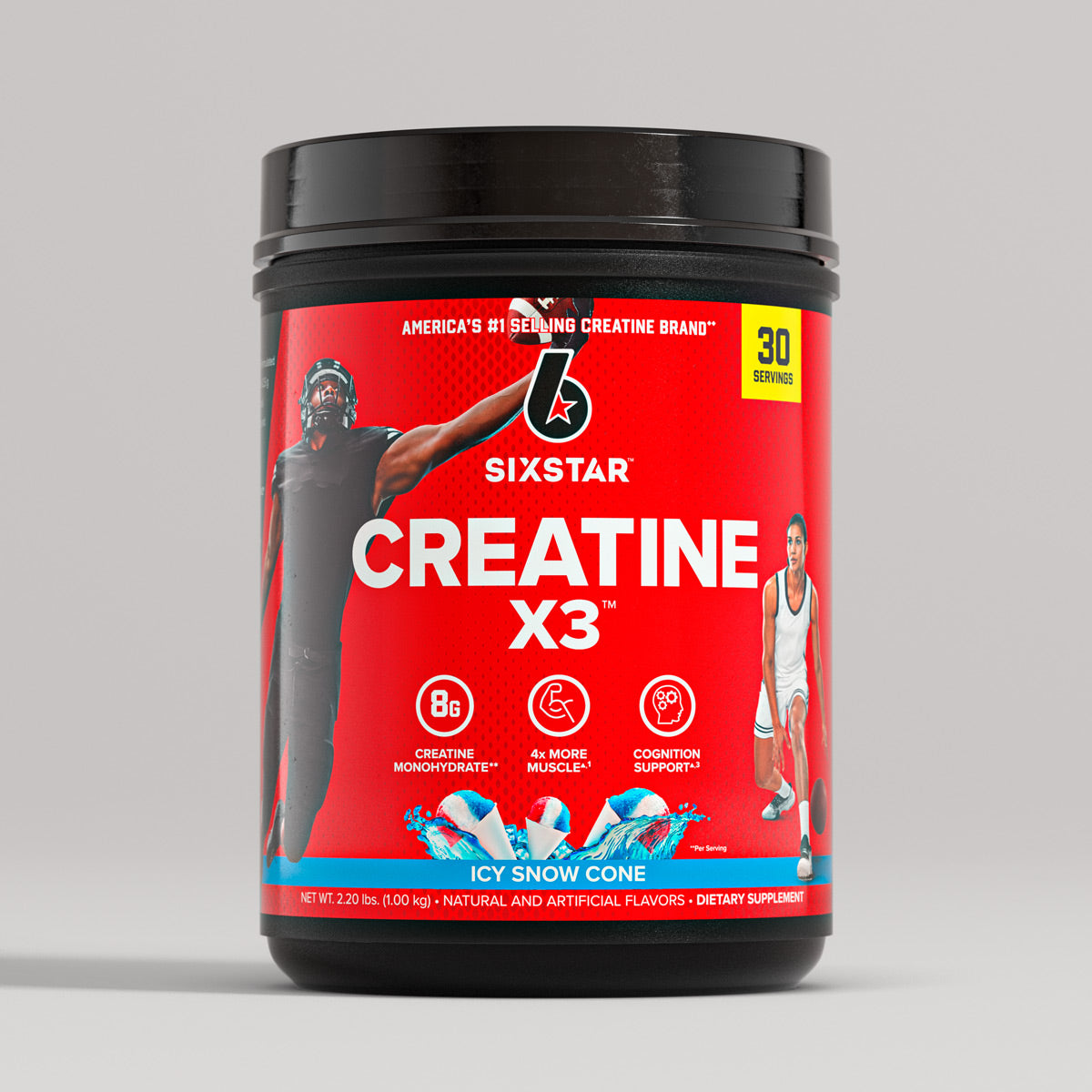Messi, Ronaldo, Maradona, Pelé, Mbappe—every top soccer player in the world shares one thing in common: At some point in their journey, they all had the drive to improve their game, just like you do right now! And just as they succeeded, you can too!
Becoming a better soccer player requires a blend of physical, technical, mental, and tactical growth. It’s not just about playing the game—it’s about truly understanding it, honing your skills, and maintaining a healthy lifestyle to boost your performance.
Whether you're aiming to join a competitive team or simply want to enjoy playing with friends, these tips will help you achieve your goals.
In this blog, we'll dive into essential strategies for enhancing your soccer skills. Whether you're a youth player, a high school athlete, or a supportive parent, we've got everything you need to know.
Let's get started on your path to soccer mania!
Table of content
Start by Writing Down Your Goals
When it comes to improving in soccer, writing down goals is key for any player. Whether you're 10 years old or in high school, having clear goals is essential for success. Common objectives might include trying out for the next team, scoring more goals, or earning a starting position. Defining these goals is crucial in your journey and can even help you aspire to become a professional player like Lionel Messi.
Writing down your goals, even short-term ones, sharpens your focus and builds excitement. Having them in writing allows you to track your progress and celebrate what you’ve mastered over time.
Setting goals for yourself or your team provides direction, clarifies what matters most, measures your progress, keeps you motivated, and holds you accountable to follow through.
Conditioning is important because it helps a young soccer player’s body perform optimally in games. Conditioning drills support their overall development as great soccer players and can help improve their resistance to injury and recovery times.
Also Read: Tabata Workout
1. Train Yourself for the Game
One common way to enhance conditioning in young soccer players is interval training. Interval soccer training sessions help build stamina, an essential physical aspect of soccer. Since soccer matches last 90 minutes, players need to have the stamina to perform for that time.
While there are many ways to boost fitness—such as running, biking, jogging, and swimming—sprinting offers significant advantages for soccer players.
We recommend doing 15-20 sprints of 20-30 meters each, with 30-60 second breaks in between. This sprint routine mirrors match play, as soccer is typically played in short, explosive bursts of 10-30 yards.
In addition to sprinting, there are stretches in the game where players jog steadily for 30 to 60 seconds. To prepare for this, 30/60s are an ideal cardio exercise. This involves running at full speed for 30 seconds, walking for 60 seconds, and repeating the cycle.
Also Read: How to Get Better at Pushups?
2. Improve your strength
While cardio is crucial in soccer, strength training is nearly as important. Incorporating weightlifting, HIIT workouts, and weighted plyometrics can help players elevate their game.
Squats and deadlifts, two of the most powerful lower-body exercises, significantly enhance a soccer player's performance.
Additional effective exercises include single-legged squats, deadlifts, shoulder presses, weighted squat jumps, and dumbbell presses. Shoulder and dumbbell presses help strengthen the arms and shoulders, preparing players for the physicality of the game.
A solid lower-body workout circuit could include 3 sets of 6 barbell squats, 3 sets of 12 single-legged squats, and 3 sets of 30-second squat jumps.
Also Read: Wrist Strengthen Exercises that Work
3. Master the Technical Skills
Mastering technical skills is essential for any aspiring soccer player. The game demands precise ball control, accurate passing, powerful shooting, and strong defending.
Here are key soccer drills to help you develop your technical abilities:
- Ball Control Drills: Mastering ball control is crucial for becoming a top-level soccer player. Practicing dribbling and juggling techniques enhances your touch and overall ball control.
Dribbling with both your dominant and non-dominant foot boosts versatility, while juggling improves balance, coordination, and touch, making it easier to handle the ball in game situations.
- Passing and Receiving Drills: Accurate passing and receiving are essential skills in soccer. Focus on practicing short and long passes to develop control and vision.
Short passes help maintain possession and build play, while long passes are key for switching the field and creating scoring chances. Work on receiving the ball with different parts of your body to ensure smooth control and quick transitions, even under pressure.
- Shooting and Finishing Drills: Improving your shooting is vital for building both power and accuracy. Practice shooting with both feet to become a more dynamic attacker.
Finishing drills teach players to score from different positions and under pressure. Consistently practicing these drills will increase your confidence and precision in front of goal.
- Defending Drills: Defending is just as important as attacking in soccer. Focus on tackling techniques to effectively win the ball from opponents and disrupt their play.
Developing better positional awareness in defense ensures you can anticipate your opponent's moves and react accordingly. Understanding defensive strategies and maintaining a solid formation can significantly enhance your team's performance.
Also Read: Full Body Warmup Exercises
4. Improve Game Intelligence
Game intelligence is gauged by a player's ability to make quick, smart decisions on the field. A savvy footballer strives to keep the game efficient, conserving energy while maximizing impact.
Essentially, game intelligence means playing smarter, not harder. Enroll in a summer soccer camp to develop these skills.
Game intelligence encompasses three key abilities:
Firstly, players need to be aware of their immediate surroundings. Based on the position of the ball, their teammates, and their opponents, they should know where they need to be.
Should they move into a space to receive a pass? Or should they pull defenders away from a teammate to create open space?
Secondly, smart players are constantly aware of their teammates' positions and adjust their own positioning accordingly.
This awareness serves two purposes: (1) to guide teammates on where they should be if they’re out of position, and (2) to anticipate their teammates' movements for quick, instinctive passes. Scouts often look for this intuitive sense in players.
Finally, savvy players understand the game's geometry. They position themselves and their teammates to create wide angles and easy passing opportunities on offense, and narrow angles and difficult passing situations for opponents on defense.
- Also Read: Soccer Conditioning Drills
5. Prepare a Resilient Mindset
A strong mindset is the final key to success in football. To truly excel, players must fully commit to their sport with passion and dedication. However, this intense commitment can also lead to frustration after defeats or burnout.
To succeed, footballers need to balance their passion with composure and resilience, learning to stay motivated while managing setbacks effectively.
Resilient mindset comprises 4 core traits: Passion, Mental strength and composure, Ability to be coached and Self-motivation.
- Passion: The most crucial trait for a footballer to achieve success is a deep passion and love for the sport. Success in football requires countless hours of practice, both on the pitch and beyond. This dedication includes watching and analyzing matches, reflecting on personal performance, and immersing oneself in every aspect of the game.
To truly succeed in football, one must live and breathe the sport.
- Mental strength and composure: Passion and love for the sport often come with a strong competitive drive. Players who are deeply passionate about their sport also have a strong desire to win. While this competitiveness is essential for achieving success in football, it should be balanced with composure and mental strength.
Composure and mental strength can help a player:
- Perform well under pressure – When time is running out, players often begin to play frantically. Composure helps a player to make rational decisions even in the last minutes of the match. Composure is also important in crucial game situations such as penalty kicks or even breakaways.
- Accept defeat – Mental strength is important for a player to be able to accept defeat and continue to train and play with a clear mind, empty of regret.
- Deal with unnecessary aggression from the other team – During matches, players can certainly get unnecessarily aggressive with players from the other team, pushing, elbowing, and stepping on feet when the referee isn’t looking. It’s easy to retaliate in rage. However, rage invokes a physical state which leads to poor decision making on the pitch and, ultimately, losses.
- Accept rejection and persevere – Footballers on the path to becoming professional football players will certainly have to deal with rejection along the way. The path for most is long and arduous. Many players get rejected from teams that they think will be their road to success. It’s important to accept this rejection and keep moving forward.
6. Willingness to be coached
Listening to coaches, teammates, and mentors for valuable insights is essential for your growth as a soccer player. These individuals offer unique perspectives and constructive criticism that can help you identify areas for improvement and refine your skills.
Approach feedback with an open mind and a willingness to learn. Even if it’s difficult to hear, remember that feedback is an opportunity for growth and not a reflection of your worth as a player.
Coaches provide technical advice and strategic guidance based on their experience and expertise. Teammates offer valuable feedback from their perspective on the field, while mentors, such as former players or seasoned coaches, share insights and guidance from their own experiences. Embrace their advice and use it to enhance your development as a player.
Also Read: How to Get Better at American Football?
7. Self-motivation
The final key trait for achieving success in football is self-motivation. As previously noted, reaching the top requires immense dedication and practice.
To put in the necessary hours and intensity, committed footballers must make significant sacrifices. This often includes waking up early for training, following a strict diet and exercise regimen, and missing out on social experiences with peers.
Prioritize Nutrition and Hydration: Your nutrition and hydration significantly impact your performance. Here’s how to optimize both:
- Balanced Diet: Focus on a diet rich in carbohydrates, proteins, and healthy fats. Incorporate a variety of fruits, vegetables, whole grains, and lean proteins.
- Stay Hydrated: Drink plenty of water throughout the day, particularly before, during, and after training sessions and games. Avoid sugary and caffeinated drinks.
- Timing: Consume a meal or snack with both carbohydrates and protein about 2-3 hours before a game or practice. After playing, refuel with a similar meal or snack within 30 minutes. Visit Sixstarpro to check out products that may help you achieve great results.
Also Read: Baseball Workouts at Home
The Bottom Line
Becoming a successful soccer player is a challenge even for the most talented individuals. Mastering essential skills is crucial for your development, but reaching a professional level requires more than just skill.
Enhancing your soccer skills requires a blend of physical conditioning, technical training, tactical understanding, mental preparation, and proper nutrition and hydration.
Improving endurance, strength, flexibility, and agility can significantly boost your on-field performance. Regular practice of dribbling, passing, shooting, and defending will develop your technical skills.
Great soccer players are not just born with talent; they are also shaped by dedication, consistent practice, and a strong work ethic.
Also Read:































